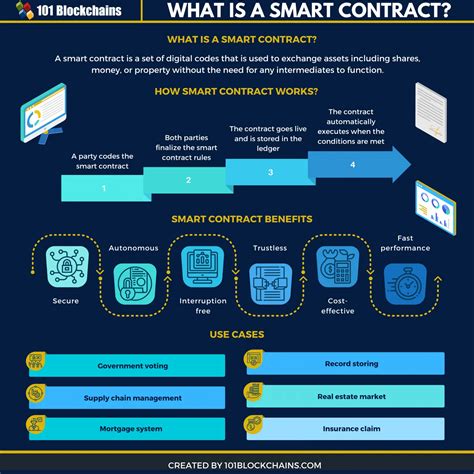Smart Contracts and AI: A New Paradigm for Digital Contracts
The rise of blockchain technology has changed the way we conduct financial transactions, trade goods, and interact with each other. One of the most significant developments in this space is the integration of artificial intelligence (AI) into smart contracts. As we explore the potential of digital contracts, it becomes clear that AI-driven contracts will change the landscape of online commerce.
What are smart contracts?
Smart contracts are self-executing contracts whose terms are written directly in lines of code. They are stored and replicated on the blockchain, making them tamper-proof, transparent, and secure. The concept of smart contracts was first introduced by Scott Drucker in 1998 as part of his work on the concept of “smart contracts for distributed applications.” However, smart contracts did not begin to gain mainstream acceptance until the launch of the Ethereum platform in 2014.
What are AI-powered smart contracts?
AI-powered smart contracts use machine learning algorithms to automate various aspects of contract creation and execution. These contracts can be programmed to:
- Automate workflows: AI-powered contracts can streamline business processes by automating tasks such as payment processing, inventory management, and order fulfillment.
- Price optimization: Advanced AI models can analyze market data and adjust prices in real time to increase revenue and reduce losses.
- Ensure compliance: AI-powered contracts can monitor contract terms and identify deviations from regulations or industry standards.
- Analyze performance: Through data analysis, AI-powered contracts can measure contract success and provide insights for improvements.
Benefits of AI-powered smart contracts
Incorporating AI into smart contracts offers many benefits, including:
- Increased efficiency: Automation reduces administrative overhead and improves productivity.
- Improved accuracy
: AI-powered contracts can detect errors and inconsistencies in data, reducing the risk of disputes and litigation.
- Improved transparency: Blockchain-based contracts provide a transparent record of all contracts, making them harder to tamper with or forge.
- Cost reduction: Automation eliminates the need for manual intervention, reduces labor costs, and streamlines operations.
Examples of AI-powered smart contracts
Several industries are already using AI-driven smart contracts:
- Supply chain management: Companies like Walmart and Maersk are using blockchain-based smart contracts to optimize inventory and automate payment processing.
- Insurance: Insurers like AIG and Allianz are using AI-powered smart contracts to optimize claims processing and reduce administrative costs.
- Real Estate: Real estate developers and investors are using AI-powered smart contracts to automate the purchase, sale, and transfer of real estate.
Challenges and Limitations
While AI-powered smart contracts offer many benefits, there are also challenges and limitations to consider:
- Security Risks

: As with any blockchain system, security is a major concern. To ensure the integrity and decentralization of AI-powered contracts, strict security measures are required.
- Regulatory Framework: The regulatory landscape for AI-powered smart contracts remains unclear, leaving companies uncertain about compliance requirements.
- Interoperability: Integrating AI-powered smart contracts into existing systems can be difficult due to different data formats and protocols.
Conclusion
Integrating AI into smart contracts is transforming digital contracts.
Để lại một bình luận